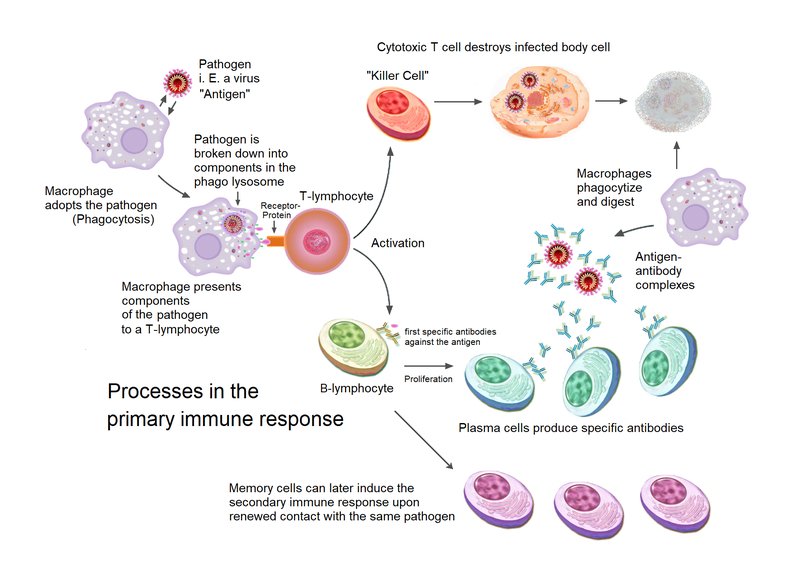
Imagine your immune system as a well-trained security force, always on the lookout for intruders. It has a range of responses to deal with different threats, much like how a police department might react to a burglary differently than a natural disaster. In the case of wolf worms, understanding how mammalian immune responses work can shed light on the fascinating relationship between host and parasite. So, let’s dig a little deeper into this world of parasitism and defense.
What Are Wolf Worms?
Wolf worms, also known as *Hypoderma*, are a type of parasite that primarily affects mammals, especially livestock like cattle and sheep. But don’t let the name fool you—these worms aren’t actually “worms” in the traditional sense. They are the larvae of certain types of flies. When they infest a mammal, they can cause a range of health issues that can affect the animal’s well-being.
Here’s how it works: female flies lay their eggs on the skin of a potential host. Once the eggs hatch, the larvae burrow into the skin and begin to develop. This stage can be quite harmful, as wolves worms can cause irritation, infection, and in some cases, even severe illness. It’s like having a guest who overstays their welcome, turning your cozy home into a bit of a disaster zone.
The life cycle of wolf worms is fascinating, too. They can spend several months developing inside their host before finally emerging to pupate and become adult flies. This prolonged stay can lead to chronic problems in the host, making it essential for the immune system to respond effectively.
How Do Mammals Defend Against Wolf Worms?
Mammals have evolved a set of remarkable defenses against all sorts of parasites, including wolf worms. The immune system is like a multi-layered fortress. It has first-line defenses like skin and mucus barriers, but it also deploys specialized soldiers, like white blood cells, to target intruders.
When a wolf worm larvae enter the skin, the immune system springs into action. One initial response involves inflammation, which serves to isolate the invader. Think of inflammation as the smoke alarms going off when there’s a fire; they alert the body to a problem that needs urgent attention. Mast cells and other immune cells flood to the site of infection, working to damage and eliminate the larvae.
You might be wondering, “What’s next?” If the first response doesn’t take care of the problem, the body ramps up its defenses. T-cells, a type of white blood cell, arise to recognize and destroy infected cells. They act much like special forces, targeting and eliminating any cells that show signs of being overtaken.
The Role of Antibodies in Fighting Off Wolf Worms
Antibodies play a critical role in the immune response to wolf worms. These Y-shaped proteins are produced by B-cells and are specifically designed to latch onto foreign particles like bacteria, viruses, and yes, even parasites. When the immune system knows it’s facing wolf worms, it generates specific antibodies to target those larvae.
Once antibodies bind to the parasites, they can neutralize them in a couple of ways. They can block the larvae from entering cells or even mark them for destruction, signaling to other immune cells to take action. This process is sort of like putting up “wanted” posters around the body, highlighting the criminals that need to be taken down.
Not every mammal has the same immune proficiency when it comes to wolf worms, though. Some animals have evolved more robust defenses, while others struggle. Understanding these variations can help researchers find ways to boost immunity. This aspect of study is crucial for livestock farmers as well, as it impacts herd health and productivity.
Why Understanding Immune Responses Matters
So why should we care about wolf worms and the immune responses of mammals? Well, there are several reasons. For one, studying these interactions helps us understand how parasites adapt and survive. It’s a game of cat and mouse (or in this case, wolf and mammal) that plays out over time. By learning more about how mammals respond to these parasites, scientists can develop better treatments and prevention strategies.
This knowledge can also spill over into human health. While we might not face wolf worms directly, understanding the immune response can help in managing various parasitic infections that do affect humans. Plus, the battle between hosts and parasites is a fundamental aspect of biology, illustrating the intricate balance of ecosystems.
Additionally, for livestock farmers, understanding how to bolster their animals’ immune systems against these worms can lead to healthier herds and, ultimately, more sustainable farming practices. It’s about creating a better environment for both animals and humans, benefiting everyone in the long run.
Research and Advances in Treatment
Researchers are continually looking for new ways to combat wolf worms and enhance mammalian immune responses. Advances in veterinary medicine have led to better diagnostic tools, enabling quicker identification of wolf worm infections. These tools help identify which animals need treatment and what kind of intervention would be effective.
There’s also ongoing research into vaccines that might help animals build immunity against wolf worms before they become a problem. This approach would be similar to how people get vaccinated to prevent diseases. If effective, these vaccines can save farmers money and lead to healthier livestock.
Moreover, understanding the genetic factors that influence immune responses can be crucial. Some breeds of livestock are naturally more resistant to parasites than others. By using selective breeding techniques, farmers can gradually develop hardier animals that can withstand wolf worm infestations better.
The Future of Studying Parasites and Immunity
The world of parasites and immune responses is vast and continually evolving. With the advent of new technologies, scientists are better equipped to explore these relationships. For example, genomic studies provide insights into how different species respond to the same threats, leading to a deeper understanding of evolution and adaptation.
As climate change affects ecosystems worldwide, the interactions between parasites like wolf worms and their hosts may shift. Understanding how these dynamics change will be crucial for both wildlife conservation and agricultural practices.
In summary, studying wolf worms and the related mammalian immune responses is more than just a niche scientific pursuit; it’s about understanding ecological balance, promoting health in livestock, and even advancing human medical science. These connections highlight just how interconnected our world truly is.
As we wrap this up, it’s clear that wolf worms may be small, but their impact on mammalian health is significant. Recognizing how our bodies respond to these challenges can lead to healthier animals and a more balanced ecosystem. So, next time you hear about wolf worms, remember the little immune ninjas working hard to protect their hosts!

